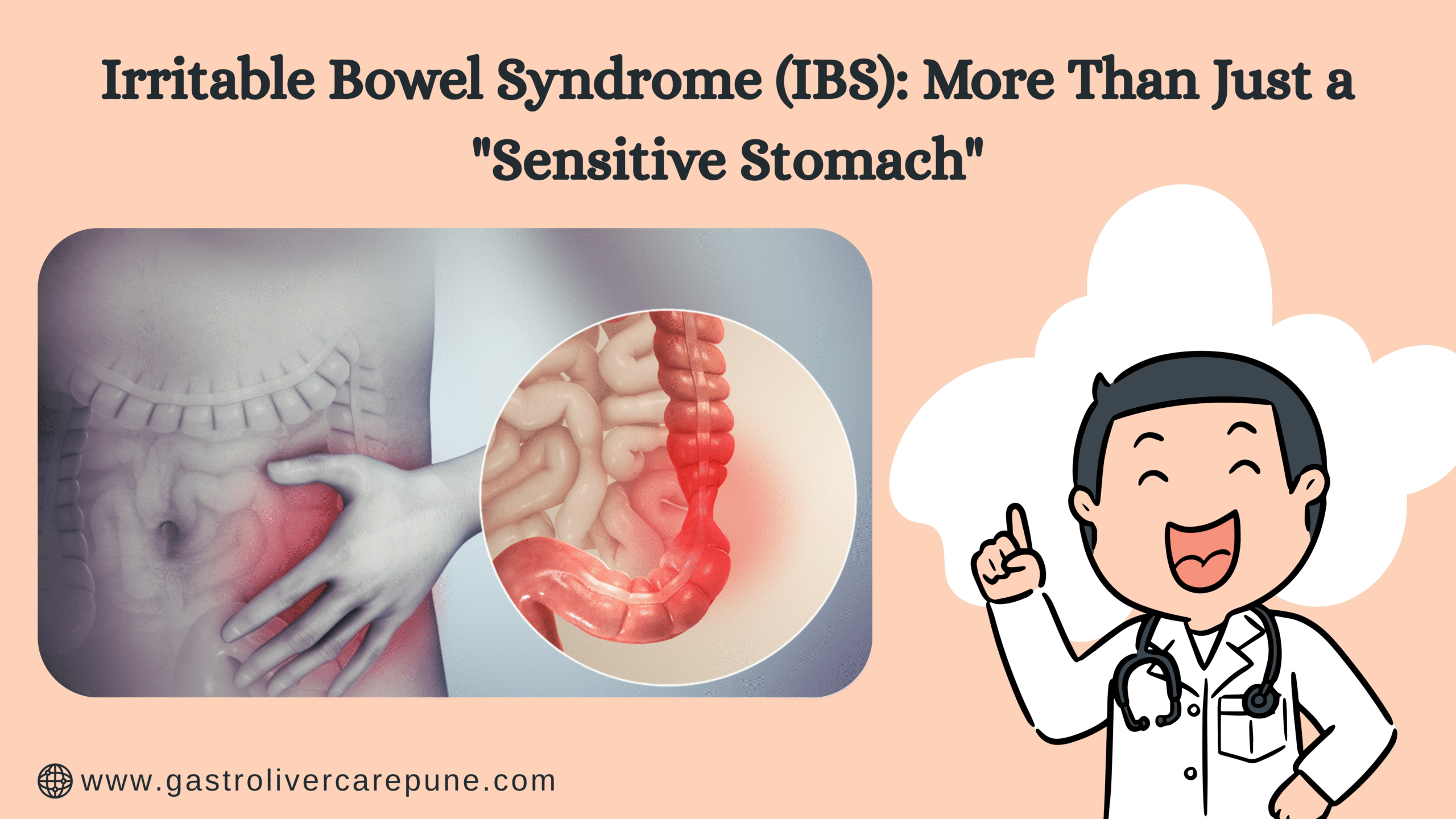Irritable Bowel Syndrome (IBS): More Than Just a “Sensitive Stomach”

Do you often experience abdominal pain, bloating, and unpredictable bowel habits? If so, you might be tempted to dismiss it as just a “sensitive stomach.” However, these could be signs of a common but often misunderstood condition: Irritable Bowel Syndrome (IBS). At Sri gastro clinic, we believe in empowering our patients with knowledge, so let’s delve deeper into what IBS is and how it can be managed.
What is Irritable Bowel Syndrome (IBS)?
IBS is a chronic gastrointestinal disorder that affects the large intestine. Unlike inflammatory bowel diseases (IBD) such as Crohn’s disease or ulcerative colitis, IBS does not cause changes in bowel tissue or increase your risk of colorectal cancer. However, the symptoms of IBS can be significant and can greatly impact your quality of life.
The exact cause of IBS is unknown, but it’s believed to be a combination of factors, including:
- Gut-Brain Axis Dysfunction: This is a complex communication network between your gut and your brain. In people with IBS, this communication may not work correctly, leading to a heightened pain response and altered bowel function.
- Visceral Hypersensitivity: This means that the nerves in your gut are overly sensitive to normal stretching and movement, leading to pain and discomfort.
- Gut Motility Problems: The muscles in your intestines may contract more strongly or more slowly than normal, leading to either diarrhea or constipation.
- Post-Infectious IBS: Some people develop IBS after a severe bout of gastroenteritis.
- Gut Microbiome Imbalance: The trillions of bacteria in your gut play a crucial role in your digestive health. An imbalance in these bacteria may contribute to IBS symptoms.

Common Symptoms of IBS
The symptoms of IBS can vary from person to person, but they often include:
- Abdominal pain and cramping, which is often related to bowel movements
- Bloating and gas
- Diarrhea, constipation, or alternating between the two
- A feeling of incomplete bowel movements
- Mucus in the stool
How is IBS Diagnosed?
There is no single test to definitively diagnose IBS. A gastroenterologist at Sri gastro clinic will typically take a detailed medical history, perform a physical exam, and may order some tests to rule out other conditions. These tests might include blood tests, stool tests, and in some cases, a colonoscopy.
Managing IBS: A Personalized Approach
While there is no cure for IBS, there are many effective ways to manage the symptoms. At Sri gastro clinic, we work with our patients to develop a personalized treatment plan that may include:
- Dietary Changes: Identifying and avoiding trigger foods is a cornerstone of IBS management. This may involve a low-FODMAP diet, which restricts certain carbohydrates that can be difficult to digest.
- Lifestyle Modifications: Regular exercise, stress management techniques such as yoga and meditation, and getting enough sleep can all help to improve IBS symptoms.
- Medications: Depending on your specific symptoms, your doctor may recommend medications such as fiber supplements, laxatives, anti-diarrheal medications, or medications that target abdominal pain.
When to See a Doctor
If you are experiencing persistent abdominal pain, changes in your bowel habits, or any of the other symptoms of IBS, it’s important to see a doctor to get an accurate diagnosis and to rule out any other underlying conditions. Don’t let a “sensitive stomach” control your life. With the right diagnosis and management plan, you can take control of your IBS and live a full and active life.
If you have any concerns about your digestive health, please don’t hesitate to book an appointment at Sri gastro clinic. Our experienced team of gastroenterologists is here to help you on your journey to better gut health.
